London
13:36
10°C
°C
Client
Startup, Royal College of Art,
Client
Startup, Royal College of Art,
Year
2024
Year
2024
Category
Sustainability
Category
Sustainability
MatSwap
MatSwap
MatSwap
To create an ecosystem where artists and designers ethically reuse materials, driving sustainability and cost savings.
To create an ecosystem where artists and designers ethically reuse materials, driving sustainability and cost savings.
To create an ecosystem where artists and designers ethically reuse materials, driving sustainability and cost savings.
Context
Context
Context
Art and Design students typically spend £70 - £100 pounds per project on materials (survey with 95 students). However, upon completing their modules, they encounter significant challenges in storing unused materials due to space constraints. Consequently, they resort to disposal, thus increasing their carbon footprint and education expenses.
Art and Design students typically spend £70 - £100 pounds per project on materials (survey with 95 students). However, upon completing their modules, they encounter significant challenges in storing unused materials due to space constraints. Consequently, they resort to disposal, thus increasing their carbon footprint and education expenses.
Art and Design students typically spend £70 - £100 pounds per project on materials (survey with 95 students). However, upon completing their modules, they encounter significant challenges in storing unused materials due to space constraints. Consequently, they resort to disposal, thus increasing their carbon footprint and education expenses.
Why Now?
Why Now?
Why Now?
Today's consumption rates would demand resources of 2/3 of the planet. Only 7.2% of used materials are recycled significantly impacting the climate crisis. Art and Design universities generate substantial waste, including project materials which are often incinerated or sent to landfills. Prioritizing circularity would notably cut our carbon footprint.
Today's consumption rates would demand resources of 2/3 of the planet. Only 7.2% of used materials are recycled significantly impacting the climate crisis. Art and Design universities generate substantial waste, including project materials which are often incinerated or sent to landfills. Prioritizing circularity would notably cut our carbon footprint.
Today's consumption rates would demand resources of 2/3 of the planet. Only 7.2% of used materials are recycled significantly impacting the climate crisis. Art and Design universities generate substantial waste, including project materials which are often incinerated or sent to landfills. Prioritizing circularity would notably cut our carbon footprint.
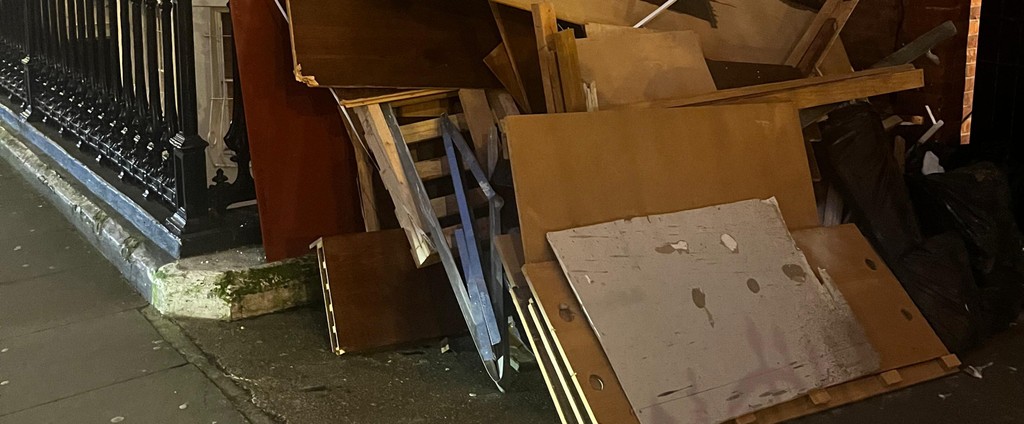



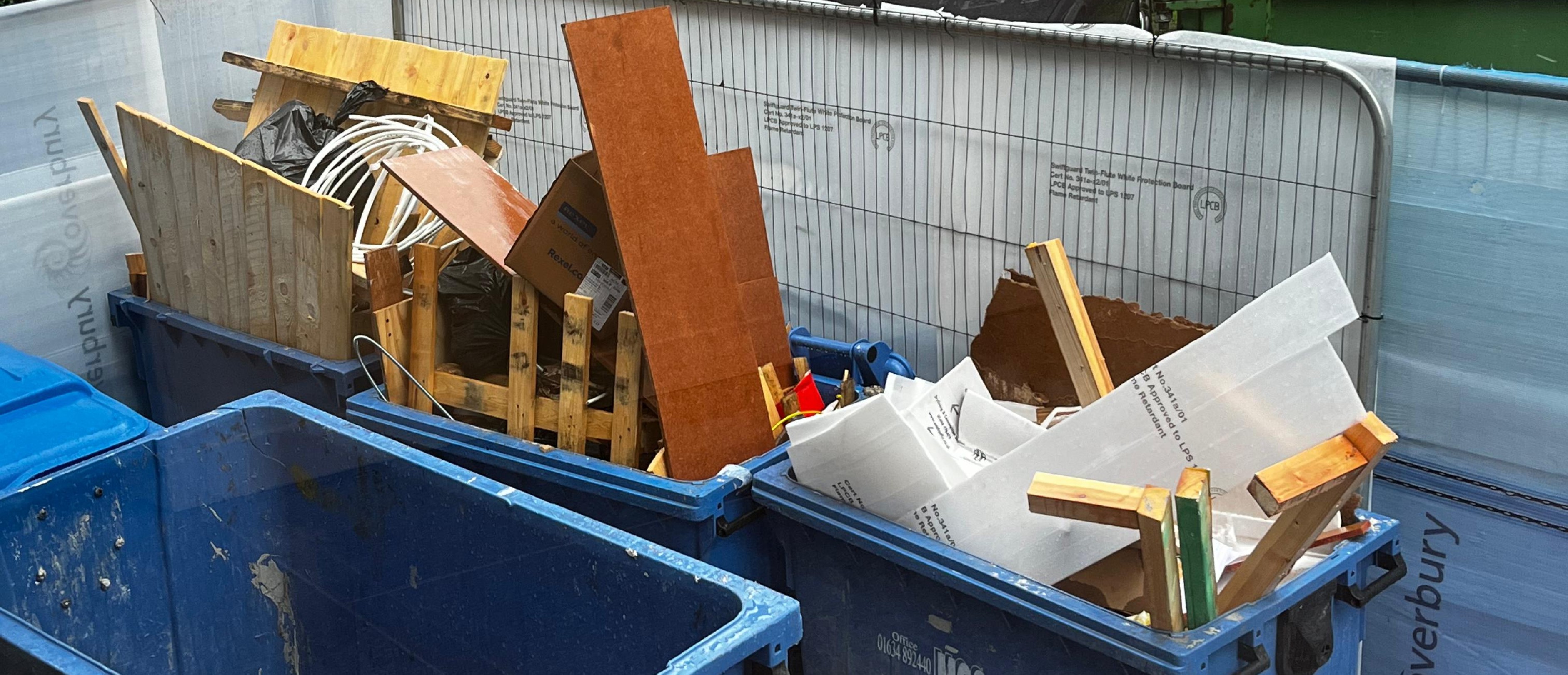







Market Opportunity
Market Opportunity
Market Opportunity
Taking the global market for waste produced to be £12B and narrowing it down to 5% of university students in the UK as our market share, we can estimate it to be £24M.
Taking the global market for waste produced to be £12B and narrowing it down to 5% of university students in the UK as our market share, we can estimate it to be £24M.
Taking the global market for waste produced to be £12B and narrowing it down to 5% of university students in the UK as our market share, we can estimate it to be £24M.
Introducing
Introducing
Introducing
MatSwap
MatSwap
MatSwap
Vision
Vision
Vision
To create an ecosystem where artists and design students ethically reuse materials, driving sustainability and cost savings.
To create an ecosystem where artists and design students ethically reuse materials, driving sustainability and cost savings.
To create an ecosystem where artists and design students ethically reuse materials, driving sustainability and cost savings.
Solution
Solution
Solution
Our app-based material-swapping platform addresses critical challenges faced by Art and Design students: high material costs, storage constraints, and environmental impact.
The platform works by enabling students to sell unused materials, generating extra income and freeing up valuable storage space. The platform fosters connections among students, enhancing community and collaboration.
Buyers benefit from access to cheaper second-hand materials, significantly reducing project expenses. By purchasing second-hand materials, students help reduce the demand for new resources and their associated environmental impact.
Our app-based material-swapping platform addresses critical challenges faced by Art and Design students: high material costs, storage constraints, and environmental impact.
The platform works by enabling students to sell unused materials, generating extra income and freeing up valuable storage space. The platform fosters connections among students, enhancing community and collaboration.
Buyers benefit from access to cheaper second-hand materials, significantly reducing project expenses. By purchasing second-hand materials, students help reduce the demand for new resources and their associated environmental impact.
Our app-based material-swapping platform addresses critical challenges faced by Art and Design students: high material costs, storage constraints, and environmental impact.
The platform works by enabling students to sell unused materials, generating extra income and freeing up valuable storage space. The platform fosters connections among students, enhancing community and collaboration.
Buyers benefit from access to cheaper second-hand materials, significantly reducing project expenses. By purchasing second-hand materials, students help reduce the demand for new resources and their associated environmental impact.
Impact
Impact
Impact
MatSwap addresses the urgency of climate change by directly reducing the waste generated in educational institutions and promoting the reuse of materials. In RCA alone, in the year 2023, over 230 tonnes of waste was produced, out of which around 50% of it was incinerated. Now imagine this in universities across the globe, that would be a staggering 4.6 million tonnes.
MatSwap's initiative to facilitate material reuse in academic environments can substantially reduce waste generation, potentially aligning with practices that have achieved net carbon savings of up to 4.3 million tonnes CO2e annually through recycling, as seen in broader waste management data. By reducing the need for new materials and minimising reliance on energy-intensive waste processes like incineration (2.7 million tonnes CO2e) and landfill (0.9 million tonnes CO2e), MatSwap aims to significantly cut greenhouse gas emissions from material wastage.
MatSwap addresses the urgency of climate change by directly reducing the waste generated in educational institutions and promoting the reuse of materials. In RCA alone, in the year 2023, over 230 tonnes of waste was produced, out of which around 50% of it was incinerated. Now imagine this in universities across the globe, that would be a staggering 4.6 million tonnes.
MatSwap's initiative to facilitate material reuse in academic environments can substantially reduce waste generation, potentially aligning with practices that have achieved net carbon savings of up to 4.3 million tonnes CO2e annually through recycling, as seen in broader waste management data. By reducing the need for new materials and minimising reliance on energy-intensive waste processes like incineration (2.7 million tonnes CO2e) and landfill (0.9 million tonnes CO2e), MatSwap aims to significantly cut greenhouse gas emissions from material wastage.
MatSwap addresses the urgency of climate change by directly reducing the waste generated in educational institutions and promoting the reuse of materials. In RCA alone, in the year 2023, over 230 tonnes of waste was produced, out of which around 50% of it was incinerated. Now imagine this in universities across the globe, that would be a staggering 4.6 million tonnes.
MatSwap's initiative to facilitate material reuse in academic environments can substantially reduce waste generation, potentially aligning with practices that have achieved net carbon savings of up to 4.3 million tonnes CO2e annually through recycling, as seen in broader waste management data. By reducing the need for new materials and minimising reliance on energy-intensive waste processes like incineration (2.7 million tonnes CO2e) and landfill (0.9 million tonnes CO2e), MatSwap aims to significantly cut greenhouse gas emissions from material wastage.
Key Features
Key Features
Key Features
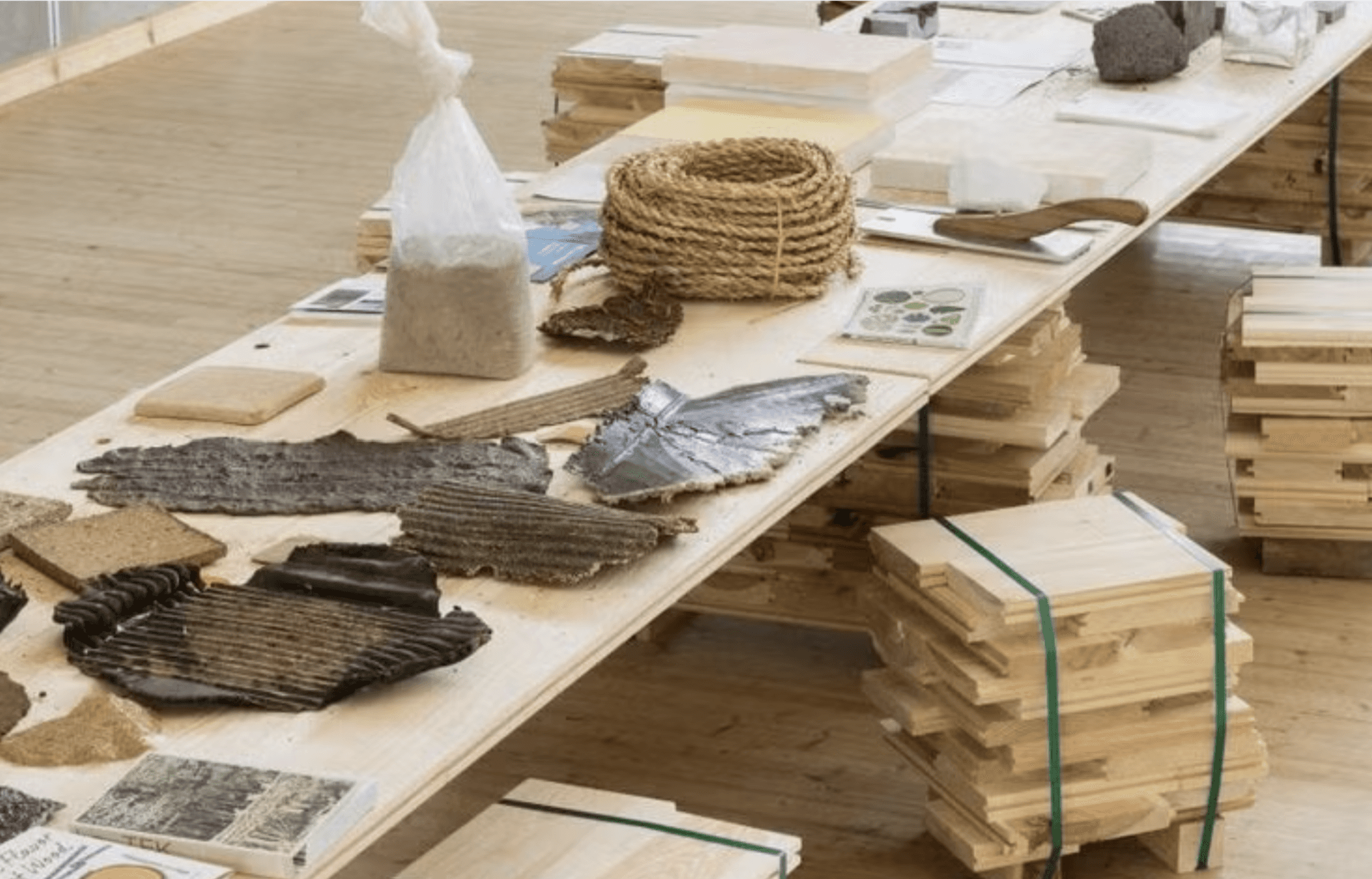

Selling Used Materials
Selling Used Materials
Sellers post pictures and details of materials to be sold as per provided guidelines.
Price suggestions given by the app and finalised by seller
Sellers post pictures and details of materials to be sold as per provided guidelines.
Price suggestions given by the app and finalised by seller



Buying Cheap Materials
Buying Cheap Materials
Viewing postings by buyers @communicating for the purchase
Paying though the secure gateway in the app and collecting materials from the seller.
Viewing postings by buyers @communicating for the purchase
Paying though the secure gateway in the app and collecting materials from the seller.


Aggregrated Calendars for Smart Material Sourcing
Aggregrated Calendars for Smart Material Sourcing
Syncs important events across universities into a complied updated calendar
Enables univerties to plan purchases of materials
Syncs important events across universities into a complied updated calendar
Enables univerties to plan purchases of materials
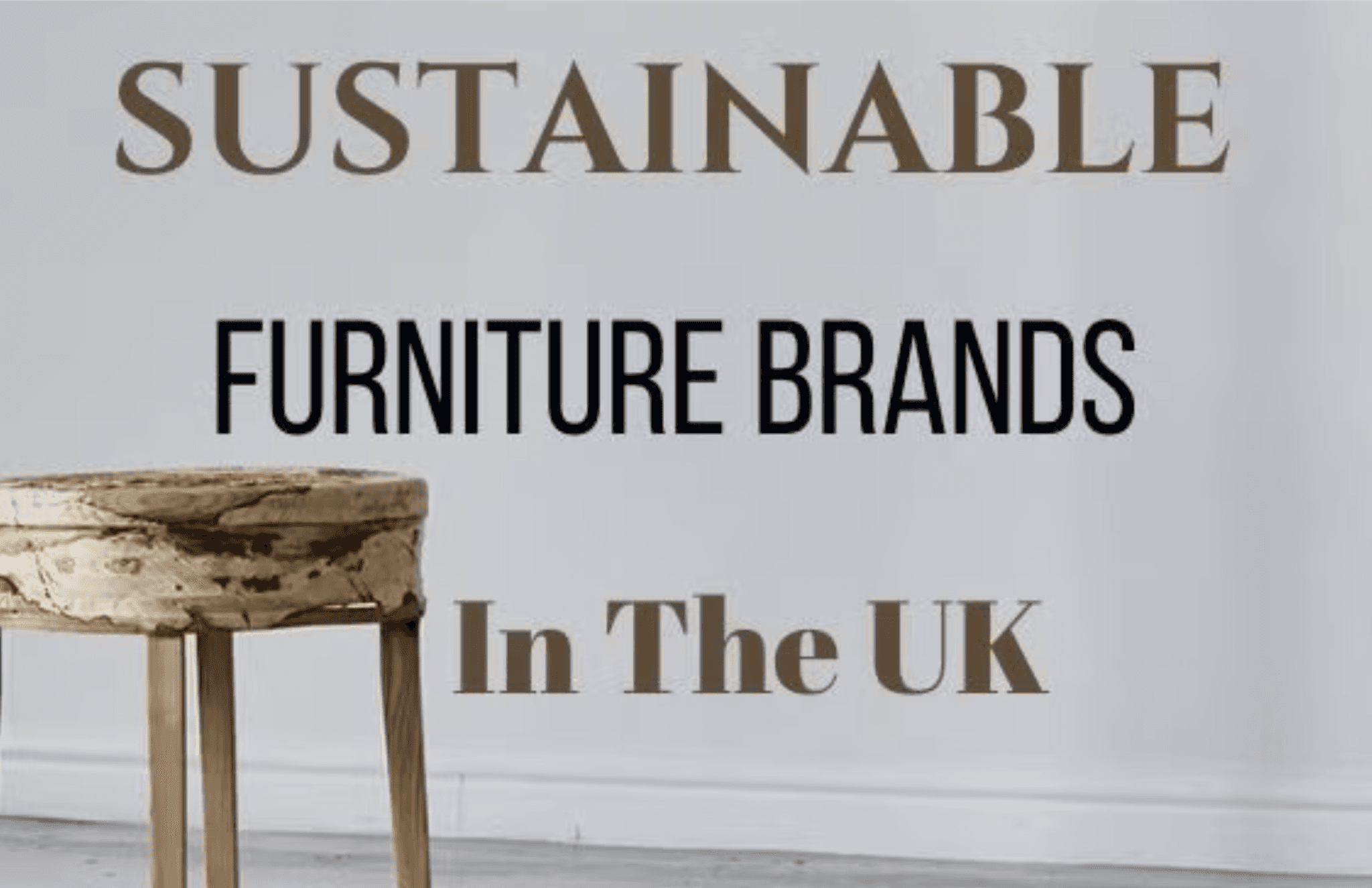


Promotion of Sustainable Brands
Promotion of Sustainable Brands
Emerging sustainable brands like the eco- board, Vinted, and Petitpli run advertisements for better visibility.
Emerging sustainable brands like the eco- board, Vinted, and Petitpli run advertisements for better visibility.
App Features
App Features
App Features
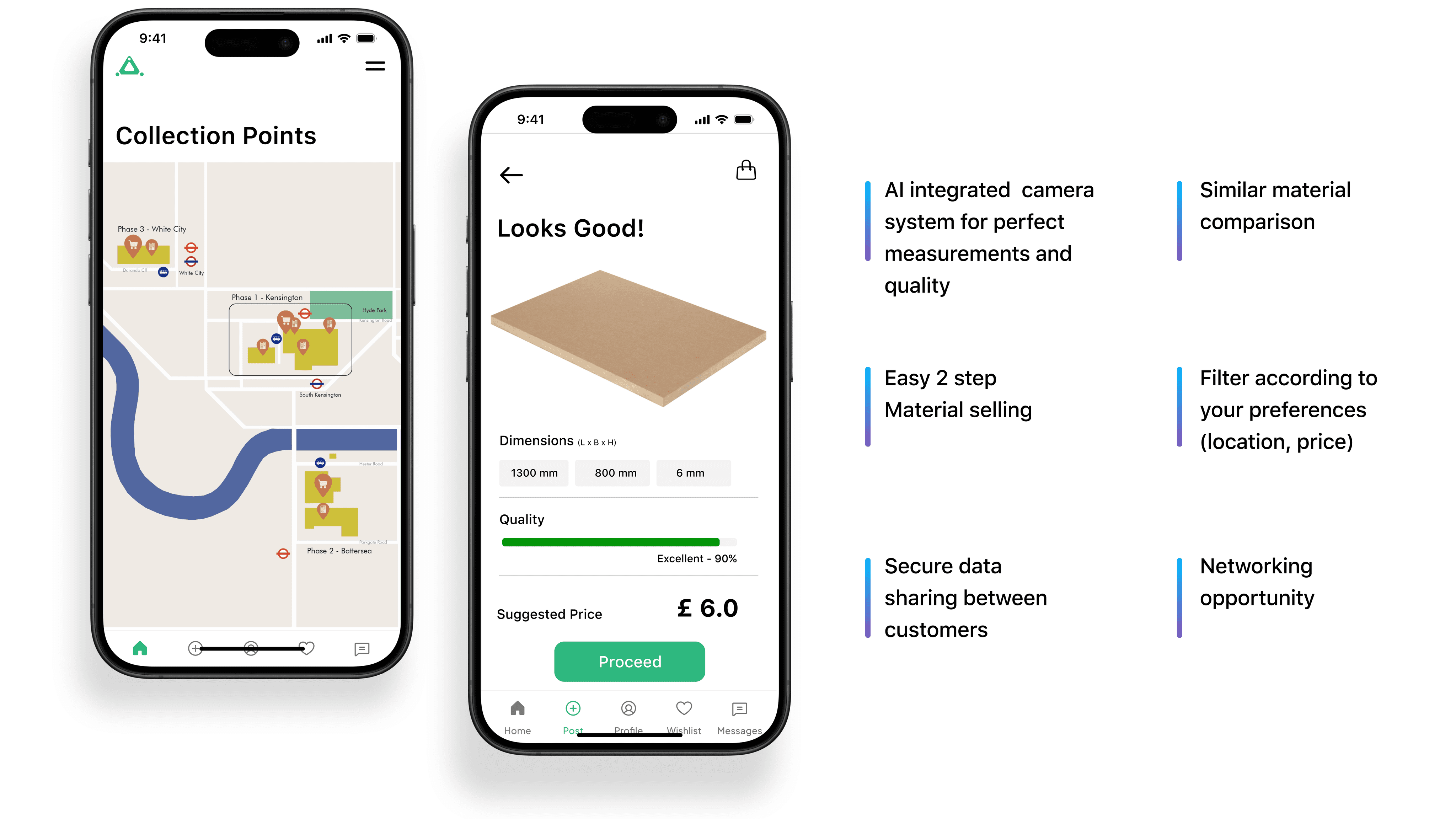

Go to Market Strategy
Go to Market Strategy
Go to Market Strategy
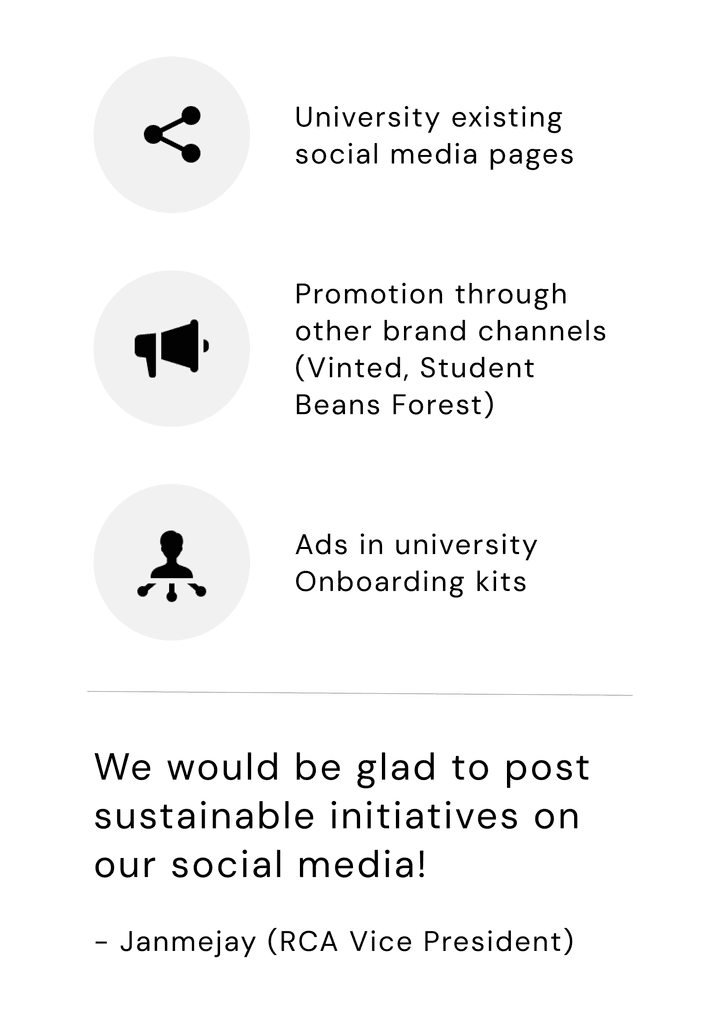



Traction
Traction
Traction
Testing our service's appeal via a material exchange pop up
Testing our service's appeal via a material exchange pop up
Testing our service's appeal via a material exchange pop up
We asked students how much would they be willing to sell their materials for and what would influence their purchase decisions if they were to buy it from someone else online.
We asked students how much would they be willing to sell their materials for and what would influence their purchase decisions if they were to buy it from someone else online.
We asked students how much would they be willing to sell their materials for and what would influence their purchase decisions if they were to buy it from someone else online.
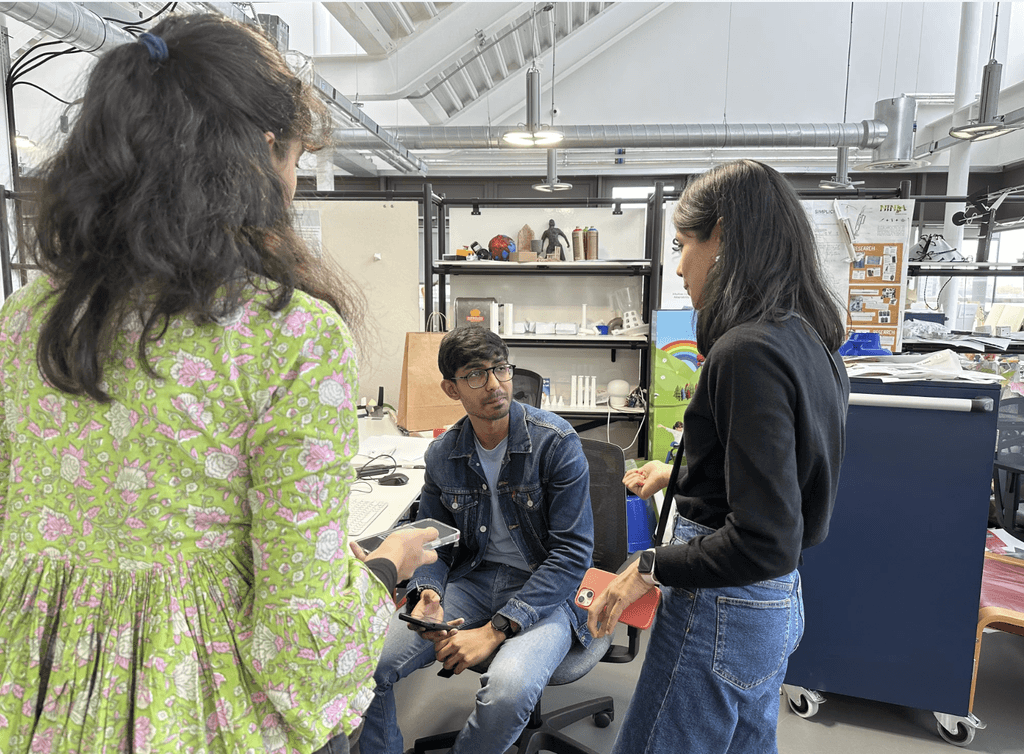


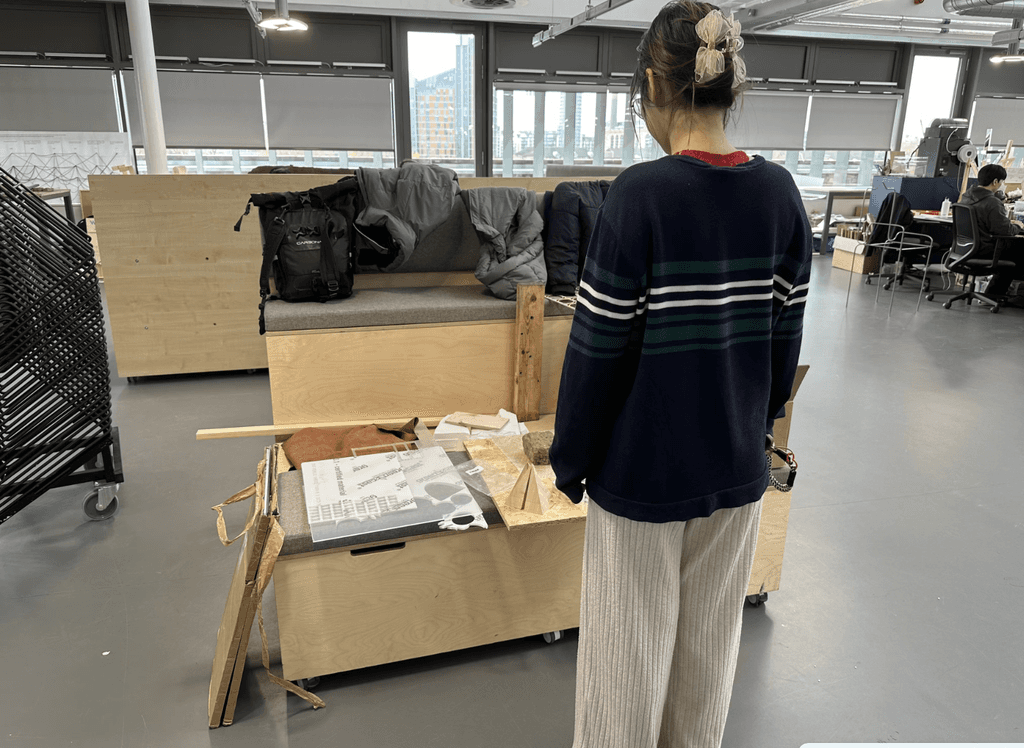


"Knowing demand in advance will ensure we are always ready for student's needs and would reduce our dead stock sustainably."
"Knowing demand in advance will ensure we are always ready for student's needs and would reduce our dead stock sustainably."
"Knowing demand in advance will ensure we are always ready for student's needs and would reduce our dead stock sustainably."
Jonathan Carter,
Shop Manager, RCA
Jonathan Carter,
Shop Manager, RCA
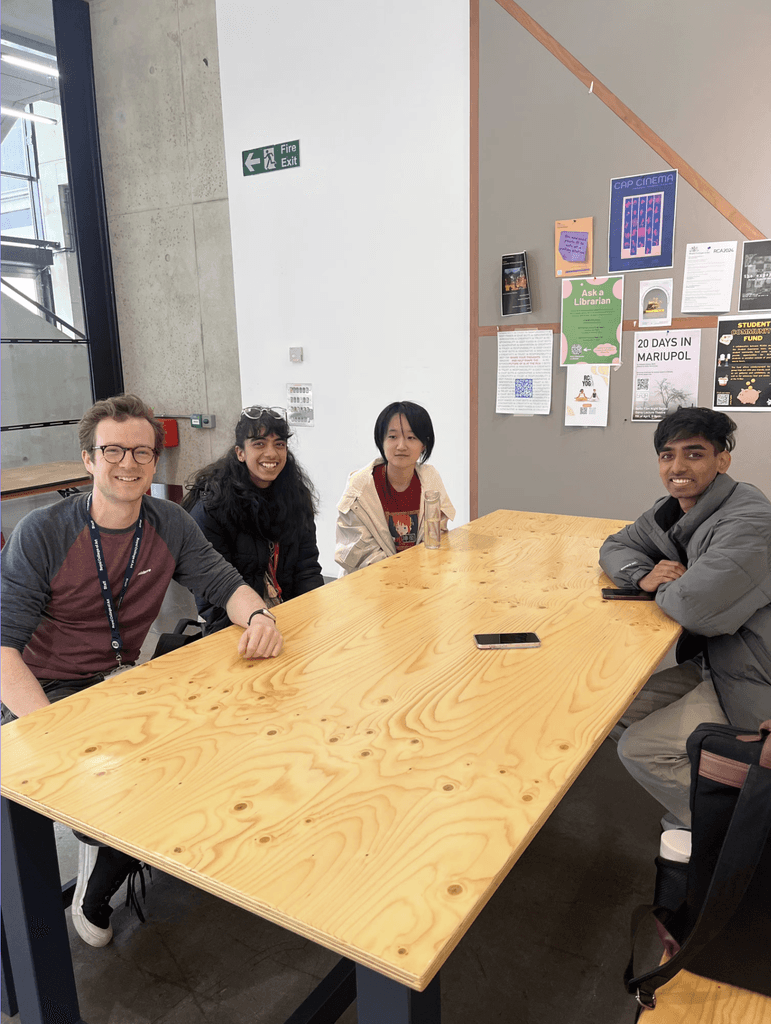


Potential Revenue Streams
Potential Revenue Streams
Potential Revenue Streams
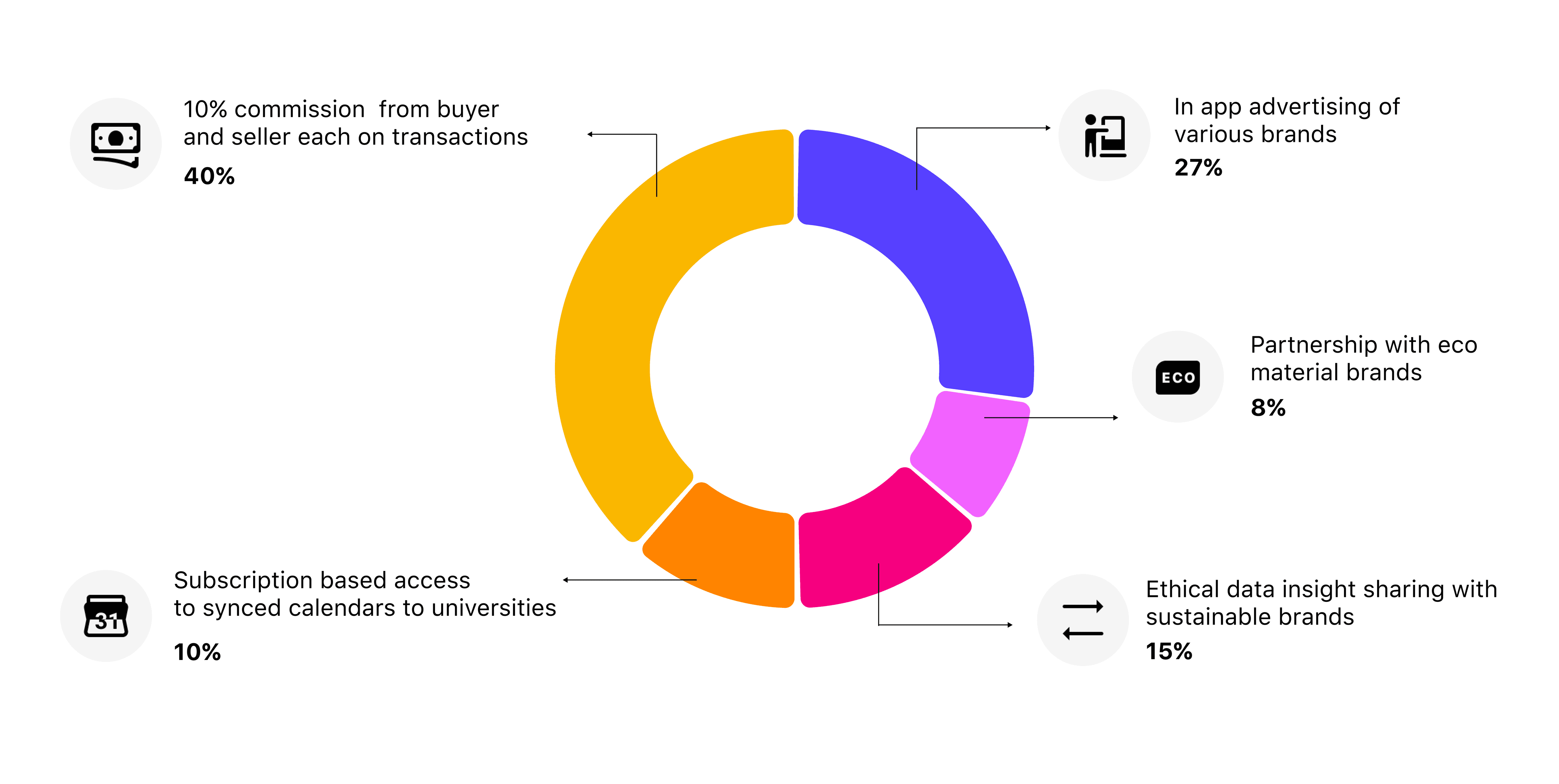

First Year Estimations
First Year Estimations
First Year Estimations
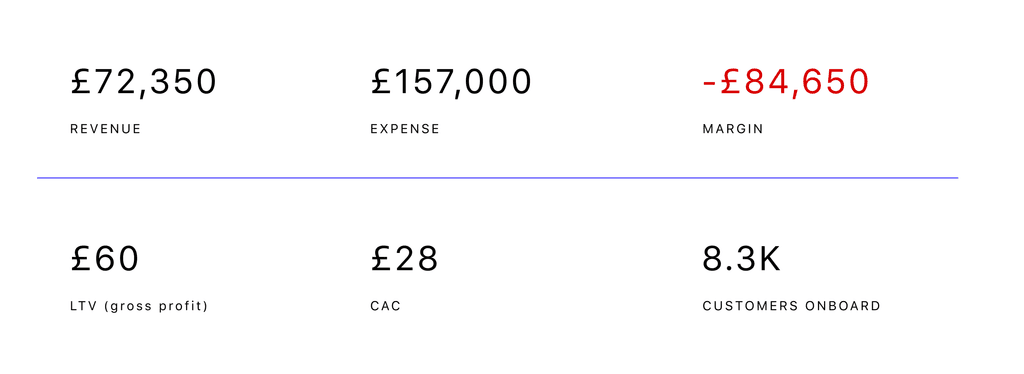

Financial Plan Details
Business Model Canvas
Business Model Canvas
Business Model Canvas
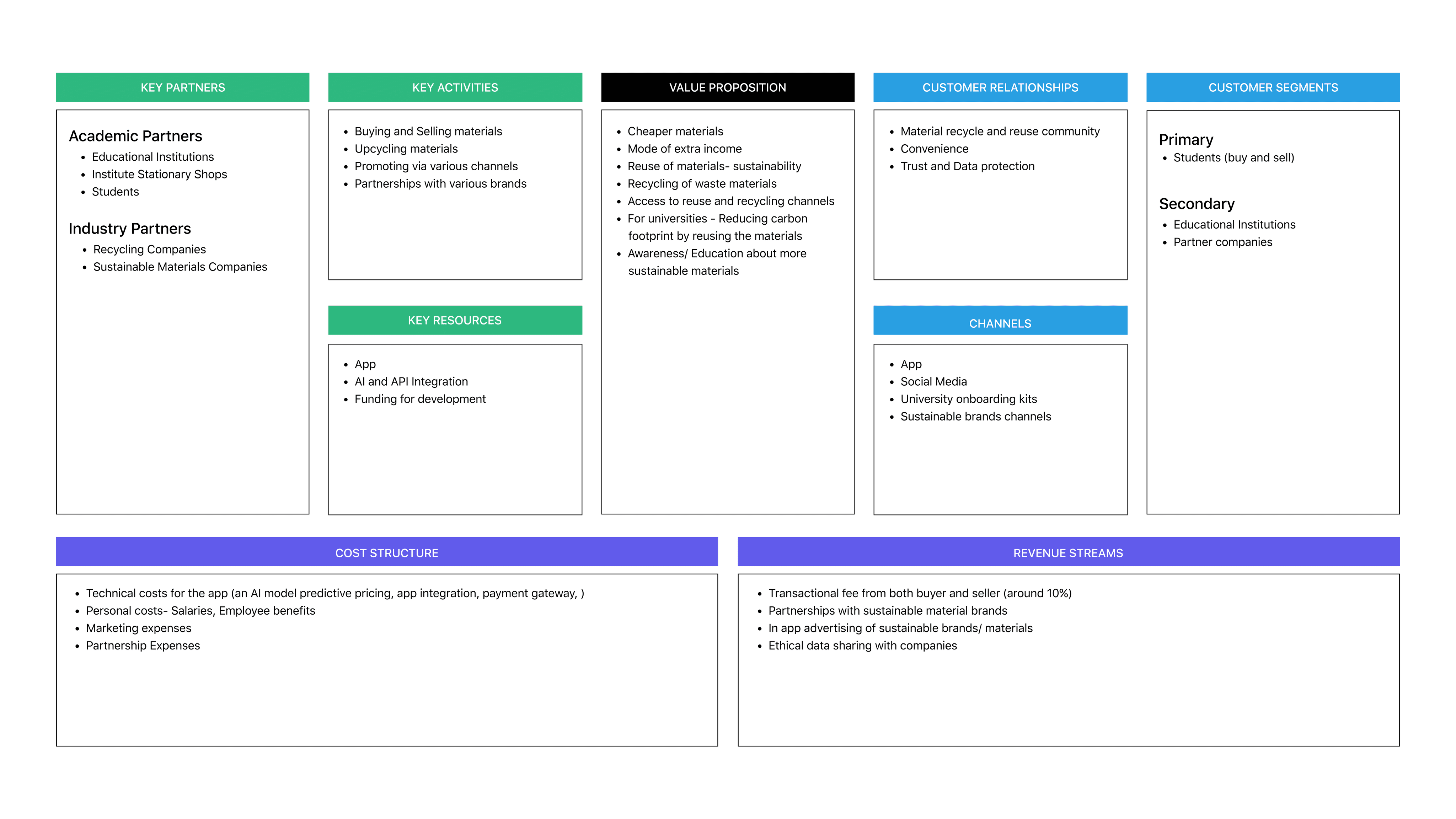


Service Design Blueprint
Service Design Blueprint
Service Design Blueprint
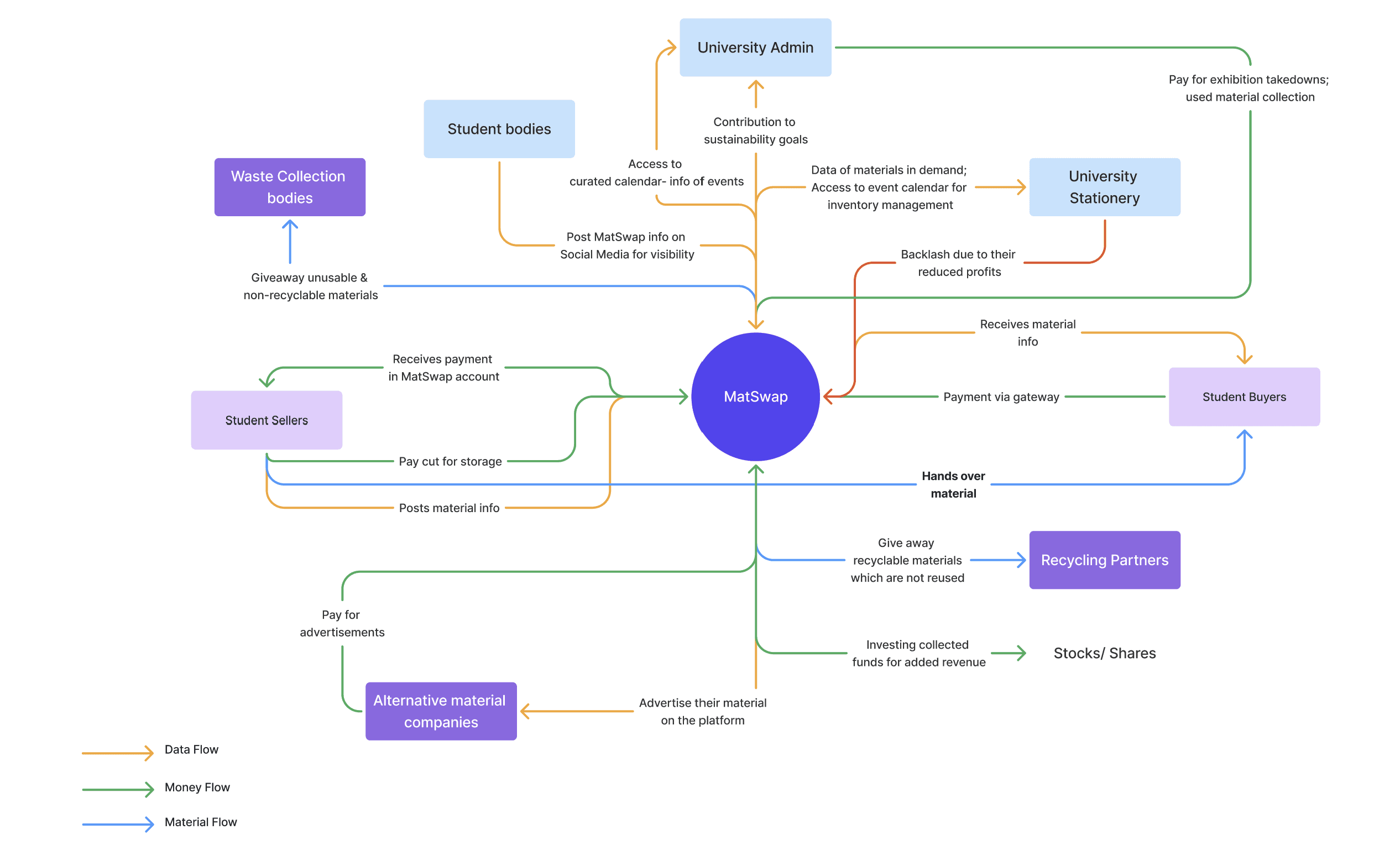


Roadmap
Roadmap
Roadmap
Business Launch
Year 1
MatSwap pilot run at RCA
Marketing and creating awareness
Expand service to top design universities in London
Identifying and partnering with recycling companies
Fundraising
Network Expansion
Year 2
Expand service to all art & design colleges in London
Identify and Partner with other sustainable brands
Brand Visibility
Year 3-4
Introducing Eco-friendly materials
Expand service to different organizations
Ad Campaigns across all social media ,
influencer marketing
Business Expansion
Year 5
Expand service across schools, community
spaces, and large-scale organizationsExpand across the United Kingdom
Ethical Considerations
Ethical Considerations
Ethical Considerations
Sustainability & Environmental Impact
Ensuring the business operates in a way that promotes environmental sustainability reducing waste and encouraging the reuse of materials.
Inclusivity and Accessibility
Design the service to be inclusive, providing equal opportunities for all students to participate. This could involve ensuring the platform is user-friendly for people with disabilities.
Privacy and Data Protection
Implement robust data protection measures, adhere to privacy laws (like GDPR in the European Union), and be transparent with users about how their data is used and protected.
Economic Impact
Promote a model that complements rather than competes with local businesses, possibly by encouraging partnerships or collaborations.
Quality and Safety of Materials
Establish guidelines for what can be listed, perform quality checks if feasible, and provide a clear way for users to report issues with materials they receive.
Fairness and Equality
Monitor transactions for fairness, possibly implementing a rating system or feedback mechanism to ensure equitable exchanges.
More Works More Works
©2024 ATHARVA SHELKE
Go Back To Top
©2024 ATHARVA SHELKE
Go Back To Top
